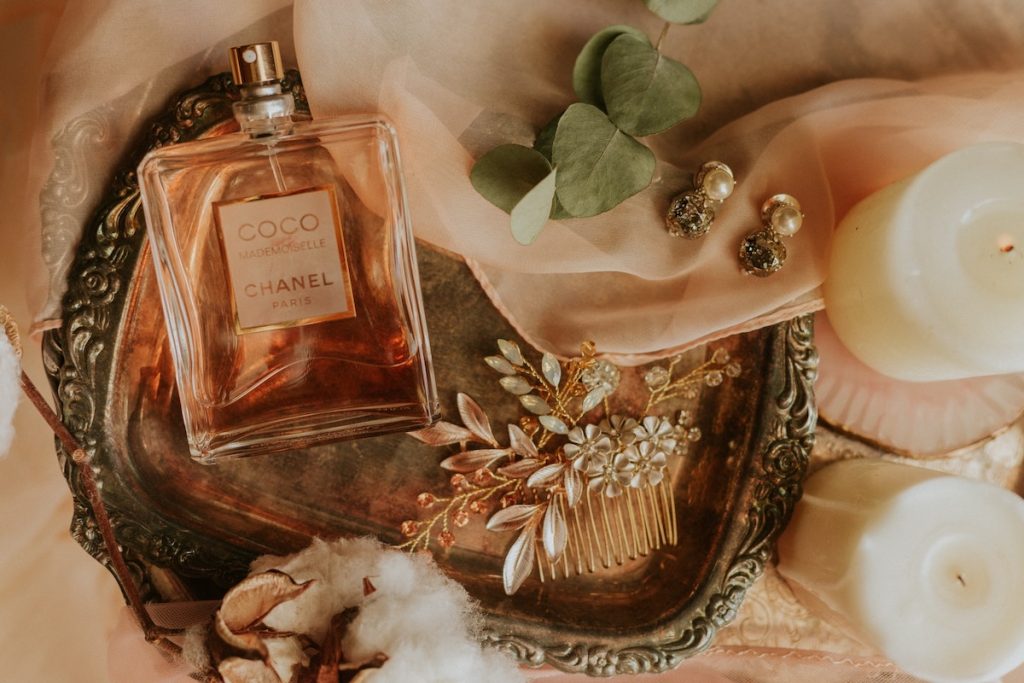Perfume selection can be likened to navigating a vast landscape, where the choices are abundant and diverse. This article provides a comprehensive guide for choosing the perfect fragrance for women. It adopts an academic style that fosters objectivity and eliminates personal pronouns.
Readers can make informed decisions by understanding the various fragrance families, considering personal style and preferences, assessing skin type and sensitivities, and conducting thorough scent testing.
It is also important to account for the occasion and time of day when selecting a fragrance and evaluate the longevity and sillage of different scents.
Understanding Different Fragrance Families
Different fragrance families categorize perfumes based on their scent profiles, allowing consumers to better understand and differentiate between various types of fragrances. Fragrance notes and composition play a crucial role in defining these families.
Perfumes are composed of multiple fragrance notes, which are individual scents that combine to create the overall scent of the perfume. These notes can be classified into different families such as floral, oriental, woody, citrus, and fresh. Each fragrance family has unique characteristics and ingredients, contributing to the overall scent profile.
Understanding fragrance concentration is also important in selecting the right perfume. Perfumes are available in different concentrations, ranging from parfum (the most concentrated) to eau de toilette (the least concentrated). The concentration determines the longevity and intensity of the scent.
Consider Her Style and Preferences
When considering an individual’s personal style and preferences, it is essential to analyze their fashion choices, color preferences, and overall aesthetic to select a suitable fragrance.
Understanding fragrance notes and researching popular perfume brands can also aid decision-making.
Here are some key factors to consider when choosing a perfume:
- Fashion choices: Consider the individual’s clothing style, whether it is trendy, classic, or eclectic. This can give insight into the type of fragrance complementing their overall look.
- Color preferences: Colors evoke different emotions and moods. Matching the fragrance to their preferred color palette can create harmony and enhance their personal style.
- Overall aesthetic: Pay attention to the individual’s taste in art, interior design, or even music. This can provide clues about the type of fragrance that would align with their aesthetic preferences.
- Personality traits: Consider whether the person is outgoing, adventurous, or more reserved. This can guide the selection towards a fragrance that reflects their personality.
Assess Skin Type and Sensitivities
Assessing an individual’s skin type and sensitivities is crucial in the process of selecting a fragrance that is suitable for their personal style and preferences. Understanding the compatibility of fragrances with different skin types can help avoid common fragrance mistakes and ensure a pleasant experience.
Fragrance compatibility is influenced by factors such as the skin’s pH level, skin moisture, and oiliness. You can choose oud perfume for her.
Dry skin tends to have difficulty retaining scents, while oily skin can amplify the intensity of fragrances. Additionally, individuals with sensitive skin may experience irritation or allergic reactions to certain ingredients commonly found in perfumes.
Test and Evaluate the Scent on Her
Personal scent preference plays a crucial role in determining whether a fragrance is well-received by an individual or not. Longevity and projection refer to the lasting power and the ability of a fragrance to project its scent in the surrounding environment.
Personal Scent Preference
One important factor to consider when selecting a perfume is an individual’s personal scent preference. Understanding one’s own fragrance notes and finding affordable options can greatly enhance the perfume selection process. Here are some key points to keep in mind:
- Knowing fragrance notes: Familiarize yourself with the different types of fragrance notes, such as floral, woody, oriental, and citrus. This knowledge will help you identify scents that align with your personal taste.
- Finding affordable options: Perfumes can vary greatly in price, but that doesn’t mean you have to compromise on quality. Look for affordable options from reputable brands or explore niche perfumers who offer unique scents at more affordable prices.
- Exploring sample sizes: Purchasing sample sizes or miniatures allows you to try out a variety of perfumes without committing to a full-size bottle. This way, you can test different scents and find the ones that truly resonate with you.
Longevity and Projection
Longevity refers to the duration of time that the fragrance remains detectable on the skin, while projection refers to the distance at which others can smell the perfume. These two factors play a significant role in determining the quality of a perfume as they directly impact the wearer’s experience and the impression it leaves on others.
To better understand fragrance longevity and projection, it is important to analyze the composition of the perfume, particularly the fragrance notes used. These notes contribute to the scent’s structure and influence how long it lasts and how far it can be detected.
Reaction on Her Skin
The reaction of a perfume on the skin can vary depending on the individual’s unique body chemistry and the specific ingredients used in the fragrance formulation. Skin sensitivity is crucial in determining how a perfume interacts with the skin.
Some individuals may have more sensitive skin, which can lead to allergic reactions when exposed to certain fragrance ingredients. It is important to consider the potential for skin sensitivity when choosing a perfume, cremes or moisturizer products for the body particularly if the person has a history of allergic reactions.
Consider the Occasion and Time of Day
Considering the occasion and time of day is crucial when selecting a perfume. Different occasions and times of day call for different scents and intensities. For instance, a light and fresh fragrance may be more suitable for daytime activities, while a more intense and seductive scent might be appropriate for evening events. To help you choose the right perfume for the occasion and time of day, consider the following factors:
| Occasion | Time of Day | Recommended Perfume |
| Formal event | Evening | Floral or oriental scents |
| Casual outing | Daytime | Citrus or fruity scents |
| Romantic date | Night | Spicy or woody scents |
Seek Recommendations and Advice From Experts
Consulting with fragrance experts can provide valuable recommendations and advice when selecting a perfume for her. Seeking expert opinions and consulting fragrance specialists can help navigate the vast array of options available in the market, ensuring a well-informed decision.
Fragrance experts possess extensive knowledge of various perfume families, notes, and compositions, enabling them to suggest scents that align with individual preferences and personalities. Their expertise allows them to assess factors such as longevity, sillage, and overall performance, ensuring that the chosen perfume meets the desired requirements.
Additionally, fragrance experts can guide individuals in understanding the olfactory pyramid and the interplay of top, middle, and base notes, enabling a more nuanced selection process. By seeking recommendations and advice from experts, individuals can make informed choices when choosing a perfume for her.
| Pros of Seeking Expert Opinions | Cons of Seeking Expert Opinions |
| Expert knowledge and guidance | Potential bias or personal preferences |
| Access to a wider range of options | Cost of consultation or services |
| Avoiding potential fragrance mishaps | Limited availability of experts |
| Increased chances of finding a perfect scent | Time and effort required for consultations |
| Learning about different fragrance families and compositions | Personal preferences may differ from expert recommendations |
Conclusion
Choosing the perfect perfume for her can be a daunting task, but with these tips, it becomes much easier.
By understanding different fragrance families, considering her personal style and preferences, assessing her skin type and sensitivities, testing and evaluating the scent on her, considering the occasion and time of day, and taking note of the perfume’s longevity and sillage, you can make an informed decision. Seeking recommendations and advice from experts can also be helpful.
So, why not make a lasting impression with the perfect scent?




